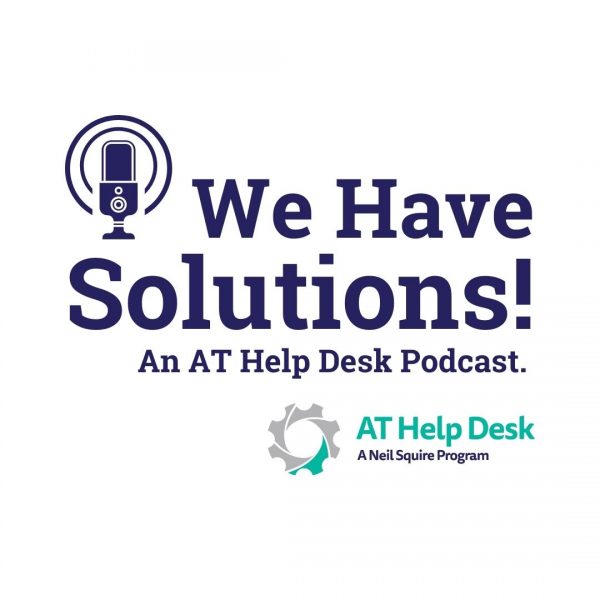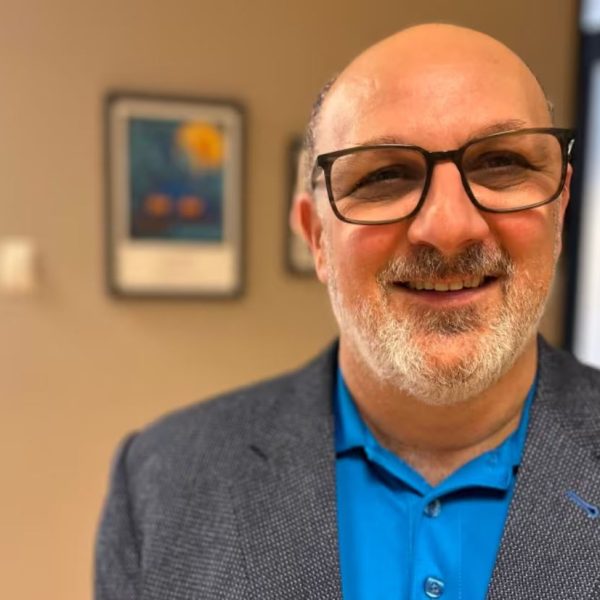The Dictionary.com App: An Accessible Dictionary Tool

Dictionaries are a great tool for you to have at your disposal, whether you are a student or a professional. But it’s not always practical to carry around a physical copy of one at all times. And, even if you use a word processor such as Word, you don’t always get the best (or the most) suggestions.
“The Hearing Aids Have Been a Godsend!”

Anthony is a self-employed carpenter in the Lower Mainland, focusing primarily on cedar fences and decks. Through WorkBC Assistive Technology Services, he received hearing aids that have made a huge difference on the job.
“I’m very grateful for your assistance,” he shares. “I can say that the hearing aids have been a godsend! Thank you!”
Monarch Reader – An Accessible Early Reading Tool

Today we are going to look at a resource that evolved from a previously shuttered early reading app called Tar Heel Reader. This app was around for 16 years, and by the end of its life saw over 17 million books read. But in 2024 when Tar Heel closed its doors, those books were not lost. Instead, these resources were given life under a new name: Monarch Reader.
WorkBC Assistive Technology Services Helps Wallace Stay in the Workforce

Wallace is 67 and he works as a nutrition and food services manager for an alcohol and drug treatment centre on Vancouver Island. He manages a staff of 12 people to provide food services for about 100 inpatients. As part of his job, he needs to consult with patients about their dietary and nutritional needs.
“Clear and concise communication is a must in an, at times, noisy environment,” he shares. “Progressive hearing loss had begun to limit my effectiveness within the workplace. Constantly asking others to repeat themselves or crowding in to hear what is being said can be very uncomfortable. Participating in open meetings was becoming very difficult if I was unable to follow the conversation or discussion. My overall effectiveness as a manager was declining.”
We Have Solutions! – Episode 33: ATIA Conference and Successful AT Adoption

Today we are joined by AT Specialist Erin LeBlanc. Having recently attended and presented at the Assistive Technology Industry Association conference in Orlando, Erin shares her experiences with us as well as sharing her own expertise on successful AT adoption.
Neil Squire Regional Manager Charles Levasseur Talks AI on CBC New Brunswick

Neil Squire Regional Manager Charles Levasseur was interviewed by CBC New Brunswick for their feature on how artificial intelligence (AI) can help level the playing field for workers with disabilities.
The CBC notes, “More than 35 per cent of New Brunswickers have a disability, according to Statistics Canada, and only 46 per cent of them are employed. But a greater understanding and acceptance of new technology in the workplace could close that gap.”
Charles discussed his hope for digital literacy around artificial technology to increase, and for new assistive technology solutions that remove barriers for people with disabilities to be embraced by employers.
“Thank You for Giving Me My Independence Back”

Margaret works at a call centre for an auction house in Chilliwack, calling customers for payment and determining when equipment sold will be leaving the site.
She uses a wheelchair, and she needed an adapted van to get to and from work independently rather than having to rely on others for rides. The WorkBC Centre in Chilliwack referred her to WorkBC Assistive Technology Services for help. She applied, and before long, she had the adapted van she needed for work.
Ember.ly: AI-Powered Mind Mapping

Mind Maps are great tools for visually laying out complex ideas. They’re especially helpful for visual learners and even for individuals with print-based disabilities because you can add pictures, colour-code certain concepts and paths, and the basic structure of the mind map allows you to better conceptualize connections between ideas. They allow you to plan out concepts in a clean and structured way without being overly “wordy.”
And while most students have probably used a mind map at some point in their lives, the concept of mind mapping is actually relatively new, with the term being officially coined in 1995 by an author and educator named Tony Buzan.
WorkBC Assistive Technology Services Helps Terry Continue Doing a Job He Loves

Terry works as a bus driver, transporting people with disabilities to and from hospital appointments. He loves his job, however, his employer determined that it was unsafe for him to continue driving with his hearing loss.
Looking to continue driving, Terry went to a hearing clinic for help. With the prohibitive cost of hearing aids, his audiologist referred him to WorkBC Assistive Technology Services for help funding the hearing aids he needs for work.
Hearing Aids “Allowed Me to Move Forward With My Training and Employment Plan”

Sandra is looking for part-time work as an online ESL tutor. She has been receiving training through WorkBC Employment Services and is volunteering to get some experience in the field.
Recently, Sandra, who is in her 60’s and has multiple disabilities, found she was having a hard time hearing people on her computer during online courses, although she initially attributed it to technical issues. Eventually, a hearing test revealed that she has hearing loss, and she was referred to WorkBC Assistive Technology Services for hearing aids to help her in her training and employment goals.



